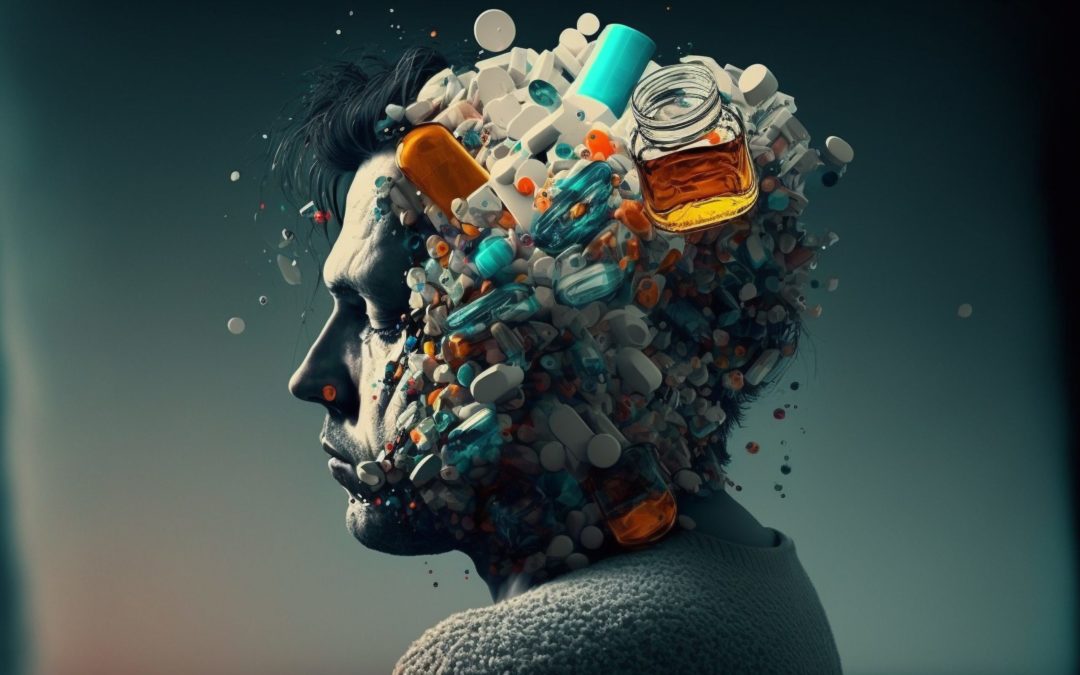The brain on drugs … from short term effects to effects that last life long, the brain on drugs is a brain in chaos. Effects can differ depending on the specific drug taken, an individual’s psychology and biology, and the amount of the drug taken. A combination of drugs can have even worse effects … yet many users still use deadly combinations of drugs like xylazine and fentanyl to create tranq, that is literally rotting people’s flesh around the country when consumed. Most drugs though have significant impacts on the functioning and brain’s chemistry. One of the drugs causing a major issue these days is opioids as we face an opioid crisis.
WHAT ARE OPIOIDS?
Opioids are painkillers. Prescriptions like oxycodone, hydrocodone, fentanyl fall under the class of opioids as do illegal drugs like heroin. Most are consumed in different forms such as but below are the most common methods of usage.
- Injection: Opioids are often injected directly into the bloodstream by being dissolved in fluid. This method is extremely dangerous and can increase risk of overdose, infections, and can lead to other health issues with transmission of diseases like HIV.
- Smoking: Opioids like heroin are often smoked. Smoking opioids can rapidly increase the onset of effects. Smoking can also damage the respiratory system and damage the lungs.
- Swallowing: Prescription opioids are often swallowed and can lead to overdose taken in large amounts.
- Snorting: Some opioids are crushed into a powder to be snorted. This again causes damage to the body in multiple ways.
HOW DO OPIOIDS AFFECT THE BRAIN?
No matter how opioids are taken, the brain on opiates releases dopamine, a neurotransmitter, which in turn facilitates feelings of reward for the user. Many users experience a sense of relaxation, euphoria, and pain relief which is highly addictive. However, slowed breathing and increased heart rate are often experienced especially when used in high doses or when combined with other drugs.
THE BRAIN REWIRED ON OPIOIDS?
People who repeatedly use opioids often become tolerant and seek higher and higher doses of the drugs. This leads to dependency and if the drug is stopped will lead to withdrawal. Long-term, out of control drug use contributes to the development of addiction. Cognitive impairment is likely with opioid use and can harm memory, decision making, and attention as well as increase the chance of mood disorders like depression and anxiety.
WORLD WIDE EMERGENCY
Opioids have caused a public health emergency across the world. The opioid crisis has brought devastation among families, individuals, and communities as loved ones become addicted and thousands are dying of overdoses. Since the crisis has begun in the United States, over 500,000 people have died due to opioid overdose. Efforts to resolve this emergency include recovery service access, increased availability of naloxone to help reverse opioid overdoses, and community education. Despite all the efforts being made, the crisis continues to be a challenge.
Our team at Scottsdale Recovery and Detox Center® is committed to serving our community as well as those nationwide. For over a decade we have remained Arizona’s premier addiction center. By providing a vast array of services we recognize not two people are exactly the same and neither are their addictions. We want our clients, community, and those who are struggling to have access to support in all forms.
We are a phone call away if you or a loved one are seeking support! Learn more by visiting scottsdalerecovery.com or call 1-888-NODRUGS.

